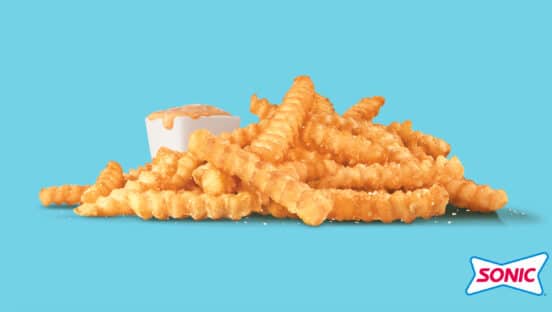When searching for something healthy to feed their kids, most moms open the refrigerator. Keely Newman opened a chain of healthy fast-casual restaurants.
Newman is a graduate of the University of Chicago Booth School of Business and has experience in the corporate world, but she was a recent Arizona transplant and stay-at-home mom when she and a longtime friend, Kelley Bird, started Grabbagreen. Neither founder had prior restaurant experience—something Newman credits for the brand’s success.
“People in the restaurant business would walk into a Grabbagreen and say this is crazy,” she says.
What’s crazy about the growing concept, Newman says, is that there are only three frozen products used in the menu’s many salads, grain bowls, and smoothies. Everything else is fresh.
The Grabbagreen menu is built around superfoods, and was created by Newman and Bird out of their own home kitchens.
“We started with the most nutrient-dense vegetables and fruits, and asked, ‘What goes with what?’” Newman says.
The No. 1 rule at Grabbagreen is no processed foods. That’s why there are no wraps or sandwiches, since bread products are inherently processed. By restricting the kind of carbs offered to grains like quinoa and brown rice, Grabbagreen is gluten-free. “The thing that sets Grabbagreen apart is that there are no unhealthy choices,” Newman says. “We don’t compromise.”
She says being a mother is still what drives her. Everything on the menu is both kid-friendly and mom-approved.
Grabbagreen
CoFounder/CEO: Keely Newman
HQ: Scottsdale, Arizona
YEAR STARTED: 2013
ANNUAL SALES: $910,000 AUV
TOTAL UNITS: 4
FRANCHISE UNITS: 1
Newman says the Grabbagreen menuboard is simple, with an “eat” side and a “drink” side. Popular eats include the Southwest bowl, made with quinoa, chicken, corn, black bean, tomato, avocado, Cheddar-Jack, cilantro, and yogurt-agave barbecue sauce. Another best-selling bowl is the Tokyo Bay, which consists of brown rice, salmon, broccoli, carrot, edamame, cucumber, avocado, green onion, and
miso-ginger sauce.
Grabbagreen salad options include the Amalfi Coast, made with spinach, cucumber, tomato, red pepper, red onion, Kalamata olives, Feta, chia seed, and Mediterranean pomegranate dressing. A popular salad among non-vegetarian customers is the Gangnam City, with spinach, kale, steak, brown rice, bean sprouts, edamame, cucumber, chia, and sesame dressing.
There are also kids’ options like the Mighty Mac & Cheese, made with quinoa noodles and Cheddar-Jack cheese.
On the “drink” side of the menu, popular choices include the Feeling Fabulous, a blend of spinach, kale, avocado, cucumber, coconut, lemon, coconut water, and agave. Another smoothie option, the Goji Go Go, is made with banana, goji, hemp, almond, flax, cinnamon, almond milk, and agave.
The pricing structure at Grabbagreen is simple. All salads and bowls are $10, including a design-your-own option. All smoothies are $7. Beverage options include green tea, fresh juices, and coconut water. The per-person check average for Grabbagreen is $13–$14.
Grabbagreen locations open early and serve both sweet and savory options like quinoa cakes and breakfast bowls. The only sweeteners used at Grabbagreen are honey and agave, and while chicken and steak are protein options and eggs can be added to breakfast items, Grabbagreen has many options for vegetarians and vegans. Of the brand’s nine proprietary sauces, seven are vegan.
The food and juice menus are preservative-free, gluten-free, and GMO-free, but Newman says she sometimes gets criticized because Grabbagreen is not 100 percent organic. “If we were all organic, bowls would be $17,” she says. “I’d rather have someone eat non-organic spinach than chicken nuggets. I want to make healthy eating fast and affordable.”
One item on the Grabbagreen menu that guests may not have encountered anywhere else is the Açai Cup. Frozen bananas are blended with açai and topped with granola, fruit, and honey.
Newman says Grabbagreen has a mixed base of customers: about 55 percent female and 45 percent male.
While the ingredients may not all be organic, Newman says, the concept’s growth has been. Grabbagreen started franchising in 2015, and its first franchised restaurant opened in Phoenix in April. The brand has signed 28 franchise agreements and more than 180 development agreements, which are in various stages of development across the country. Newman says 15 more stores will open before the end of 2016, and at least 16 will open in 2017.
“These are people seeking out a healthy option or people who have been in one of our stores while traveling,” Newman says. “Franchisees have to have passion about eating healthy, as well as management experience.”











